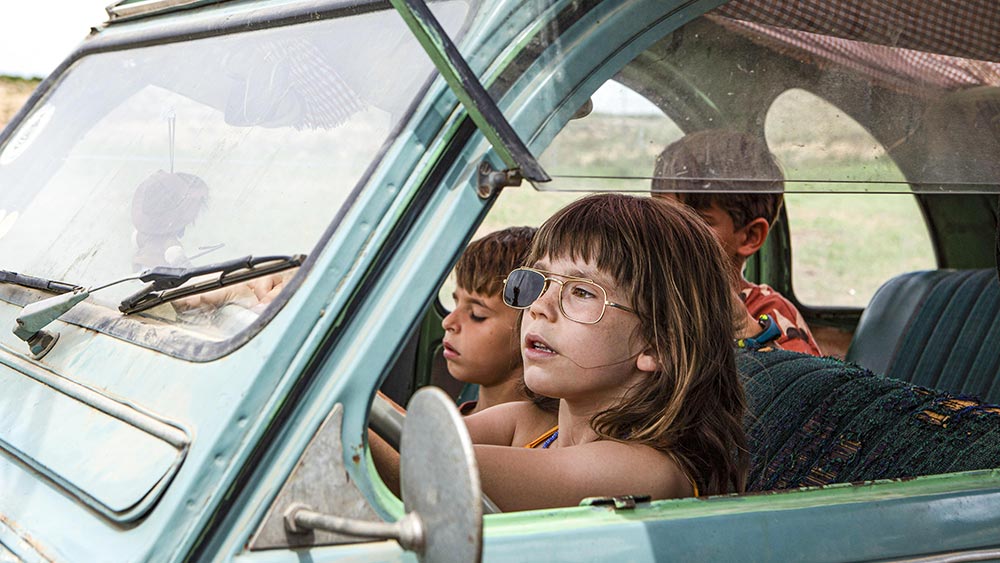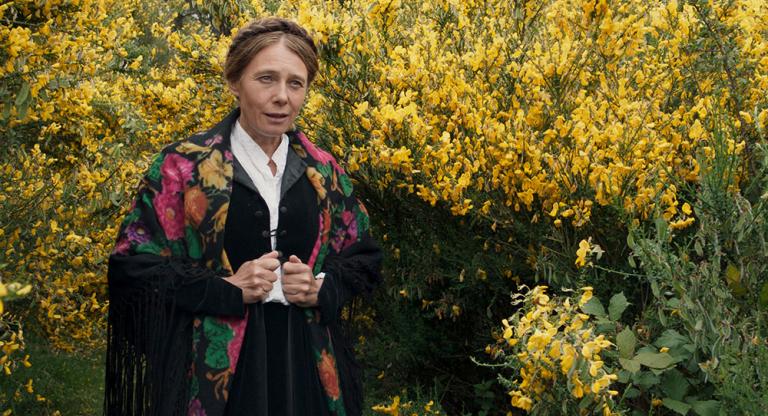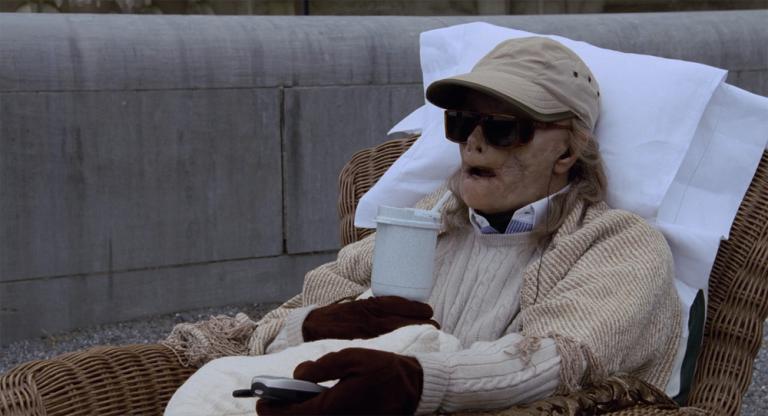The opening shots of Alcarràs (2022) could almost be details from Bruegel's The Harvesters, except for the bald mesa jutting out of the cultivated landscape. Catalonian director Carla Simón returns again to the countryside of her youth for her second feature, following the memoiristic Summer 1993 (2017). As in that film, the first and most enduring scenes are of child's play. Cousins delight in a science-fiction caper from the front seats of a junked Volkswagen until it is removed by a crane—an opening redolent, incidentally, of Chitty Chitty Bang Bang's (1968). These are among the youngest members of the Solé family, peach farmers whose livelihood has come into jeopardy. After this season, the orchards the Solés have worked for generations will be put to more lucrative use by the landowner as a solar panel array. For now, the children concern themselves with the misfortune of adults only insofar as it will impinge upon their imaginative lives.
Simón seems to time each of her films to conclude at summer’s end, finding there a temporary cessation of the long days and sanguine humors her vision requires. In the meantime, desperation turns the final harvest into a family affair, as the falling price of fruit will not provide for the usual employment of migrant laborers. Three generations of Solés can be found in the fields, with Quimet at the center—a man of stubborn dedication, wounded both by pride and by the physical demands of his toil. Jordi Pujol Dolcet, like most of the performers, had not acted before this role; the filmmakers found him at a demonstration in support of area farmers, of which he used to be one. Pujol's passing resemblance to James Gandolfini aside, his restrained performance is a revelation of indignity and sublimated rage. Rippling repercussions of betrayal and grievance originate with market forces far outside of Quimet's control, but he is tasked with bringing their consequences into the home.
Others in the family try variously to charm, intimidate, or collaborate with the landowner. So renowned for her naturalistic treatment of early childhood in Summer 1993, Simón shows range here, demonstrating her faculty too with the aged, the adult, and the adolescent. She holds the large ensemble in balance, capturing neorealist character studies with a fluid camera and then giving way to momentarily glorious tableaux around a table or a bed. Not every scene contains a piece of the drama that can be assimilated with the rest. Moments of levity punctuate the development of rancor, giving a good sense of the actual pace of life and the needful concessions of passing time.
This festival season has brought us three fine movies about fruit harvests: Under the Fig Trees (2021), Until Branches Bend (2022), and Alcarràs. Their stories are set on the withering supply side of the global consumption chain—in Tunisia, British Columbia, and the Lleida province of Catalonia, respectively. In these places, some of the world’s most precarious people are backed into the corner of a paradise they have made but do not own. As with Bruegel's Belgian peasants, their dispossession is not the principal fact of their existence but only its most tragic aspect.
Alcarràs screens this evening and tomorrow, October 6 and 7, at the New York Film Festival, the film’s North American premiere. Director Carla Simón will be in attendance for Q&As.






